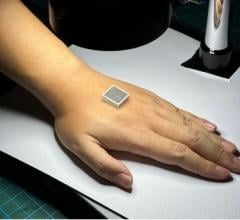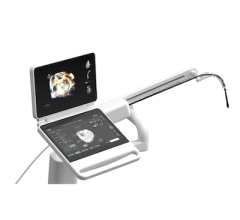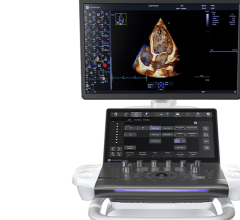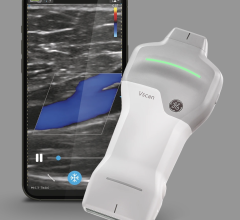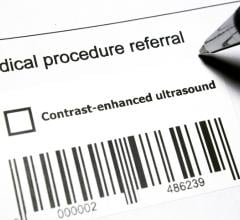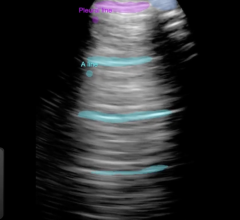
EchoGo uses artificial intelligence (AI) to calculate cardiac ultrasound left ventricular ejection fraction (EF), the most frequently used measurement of heart function, left ventricular volumes (LV) and, for the first time for an AI application, automated cardiac strain.
November 14, 2019 — Ultromics has received 510(k) clearance from the U.S. Food and Drug Administration (FDA) for its artificial intelligence (AI) driven echocardiography image analysis system EchoGo Core.
The FDA approval is a major milestone for U.K.-based Ultromics and enables the business to make EchoGo available to clinicians and healthcare providers in the United States. EchoGo applies AI to automate the analysis and quantification of cardiac ultrasound heart scans.
EchoGo has been years in development, from the first trial being set-up in 2011 to Ultromics spinning out of the University of Oxford in 2017, and now achieving FDA clearance. The next stage of growth is commercializing the product and making it available to clinicians.
Traditionally, echocardiography has relied on the expert eye of clinicians, with years of experience, measuring the anatomical structures and identifying the disease, a potentially time-consuming and highly variable process. By automating the process and applying its AI analysis to look in greater detail at the scans, EchoGo enables clinicians to interpret echocardiograms efficiently and accurately and assists in their decision-making.
EchoGo uses AI to calculate cardiac ultrasound left ventricular ejection fraction (EF), the most frequently used measurement of heart function, left ventricular volumes (LV) and, for the first time for an AI application, automated cardiac strain.
“Strain has shown to be very valuable in cardiovascular diagnostics and has been demonstrated in published studies to be linked with earlier detection of disease and improved patient outcomes," said Ross Upton, founder and CEO of Ultromics. "Ultromics’ will be the first to use artificial intelligence for automated strain analysis which is applicable to 60 million scans per year. Crucially, strain is also becoming reimbursable from January 2020 in the U.S. EchoGo allows clinicians across a wide range of experience to rapidly obtain accurate and repeatable calculations of strain parameters, assisting them in interpretation of echocardiograms”.
The company has more developments in the pipeline for 2020, including EchoGo Pro. It will be the first AI system able to predict cardiac disease from echocardiography. Ultromics also is planning to expand into other geographic regions, including Europe and Asia.
Ultromics has partnerships with leading cardiology clinical centers in the United States and 30 National Health System (NHS) centers in the U.K. Through this, it is continuously optimizing its scanning algorithms by analyzing the archive of scans held by these centers. The pipeline of AI algorithms underpinning EchoGo was built using thousands of images from a carefully curated dataset, from one of the largest echo studies of its kind.
EchoGo is a vendor-neutral platform, which integrates into the medical imaging environment, seamlessly providing clinicians with results as part of their routine diagnostic workflow.
For more information: visit www.ultromics.com


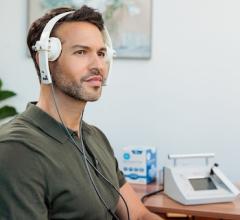
 January 28, 2026
January 28, 2026 

